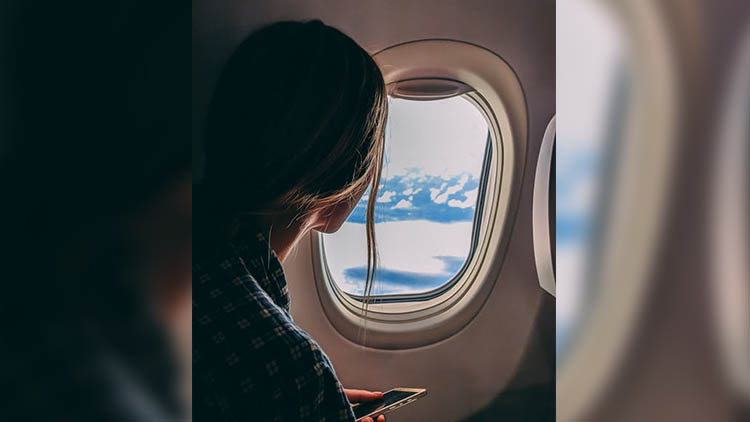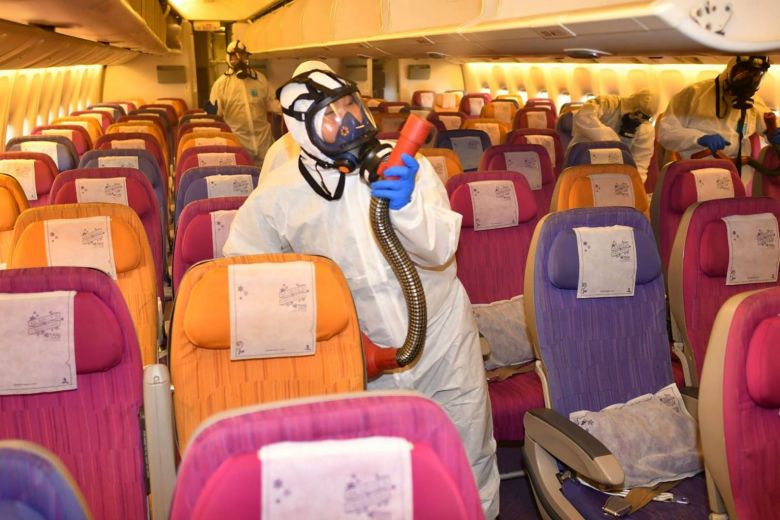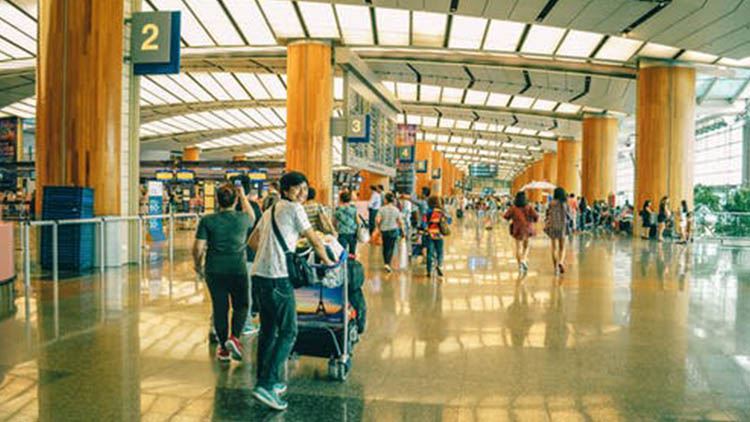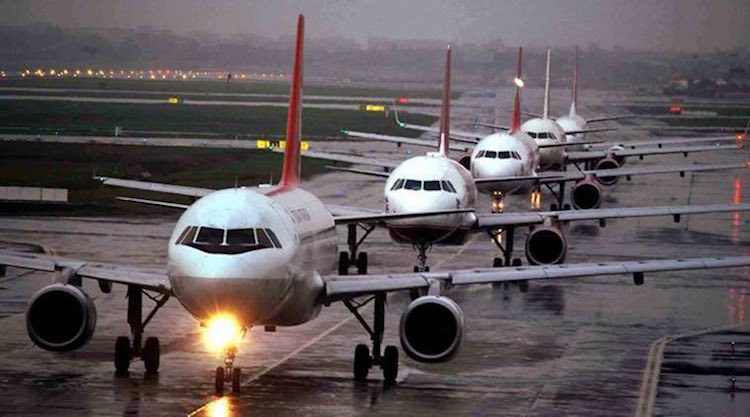Cabin Pressure: Survey Shows 33% Travellers Won’t Fly Due To COVID-19 Scare

Travellers are taking precautions to protect themselves from COVID-19 with 77% saying that they are washing their hands more frequently, 71% avoiding large meetings and 67% having worn a facemask in public. Some 58% of those surveyed said that they have avoided air travel, with 33% suggesting that they will avoid travel in future as a continued measure to reduce the risk of catching COVID-19.
When asked to rank the top three measures that would make them feel safer, 37% cited COVID-19 screening at departure airports, 34% agreed with mandatory wearing of facemasks and 33% noted social distancing measures on aircraft.
Passengers themselves displayed a willingness to play a role in keeping flying safe by: Undergoing temperature checks (43%) Wearing a mask during travel (42%) Checking-in online to minimize interactions at the airport (40%) Taking a COVID-19 test prior to travel (39%) Sanitizing their seating area (38%).
Cabin air quality: Travellers have not made up their minds about cabin air quality. While 57% of travellers believed that air quality is dangerous, 55% also responded that they understood that it was as clean as the air in a hospital operating theatre. The quality of air in modern aircraft is, in fact, far better than most other enclosed environments. Social distancing: Governments advise to wear a mask (or face covering) when social distancing is not possible, as is the case with public transport. This aligns with the expert ICAO Take-off guidance. Additionally, while passengers are sitting in close proximity on board, the cabin air flow is from ceiling to floor. This limits the potential spread of viruses or germs backwards or forwards in the cabin. There are several other natural barriers to the transmission of the virus on board, including the forward orientation of passengers (limiting face-to-face interaction), seatbacks that limit transmission from row-to-row, and the limited movement of passengers in the cabin.
No Quick Solution
While nearly half of those surveyed (45%) indicated they would return to travel within a few months of the pandemic subsiding; this is a significant drop from the 61% recorded in the April survey. Overall, the survey results demonstrate that people have not lost their taste for travel, but there are blockers to returning to pre-crisis levels of travel: A majority of travellers surveyed plan to return to travel to see family and friends (57%), to vacation (56%) or to do business (55%) as soon as possible after the pandemic subsides. But, 66% said that they would travel less for leisure and business in the post-pandemic world. Whereas 64% indicated that they would postpone travel until economic factors improved (personal and broader).
“Quarantine is a demand killer. Keeping borders closed prolongs the pain by causing economic hardship well beyond airlines. If governments want to re-start their tourism sectors, alternative risk-based measures are needed,” said de Juniac.

When asked to rank the top three measures that would make them feel safer, 37% cited COVID-19 screening at departure airports, 34% agreed with mandatory wearing of facemasks and 33% noted social distancing measures on aircraft.
Also Read:
Passengers themselves displayed a willingness to play a role in keeping flying safe by: Undergoing temperature checks (43%) Wearing a mask during travel (42%) Checking-in online to minimize interactions at the airport (40%) Taking a COVID-19 test prior to travel (39%) Sanitizing their seating area (38%).
1.jpg)
Cabin air quality: Travellers have not made up their minds about cabin air quality. While 57% of travellers believed that air quality is dangerous, 55% also responded that they understood that it was as clean as the air in a hospital operating theatre. The quality of air in modern aircraft is, in fact, far better than most other enclosed environments. Social distancing: Governments advise to wear a mask (or face covering) when social distancing is not possible, as is the case with public transport. This aligns with the expert ICAO Take-off guidance. Additionally, while passengers are sitting in close proximity on board, the cabin air flow is from ceiling to floor. This limits the potential spread of viruses or germs backwards or forwards in the cabin. There are several other natural barriers to the transmission of the virus on board, including the forward orientation of passengers (limiting face-to-face interaction), seatbacks that limit transmission from row-to-row, and the limited movement of passengers in the cabin.

No Quick Solution
While nearly half of those surveyed (45%) indicated they would return to travel within a few months of the pandemic subsiding; this is a significant drop from the 61% recorded in the April survey. Overall, the survey results demonstrate that people have not lost their taste for travel, but there are blockers to returning to pre-crisis levels of travel: A majority of travellers surveyed plan to return to travel to see family and friends (57%), to vacation (56%) or to do business (55%) as soon as possible after the pandemic subsides. But, 66% said that they would travel less for leisure and business in the post-pandemic world. Whereas 64% indicated that they would postpone travel until economic factors improved (personal and broader).

“Quarantine is a demand killer. Keeping borders closed prolongs the pain by causing economic hardship well beyond airlines. If governments want to re-start their tourism sectors, alternative risk-based measures are needed,” said de Juniac.
Latest Videos
















